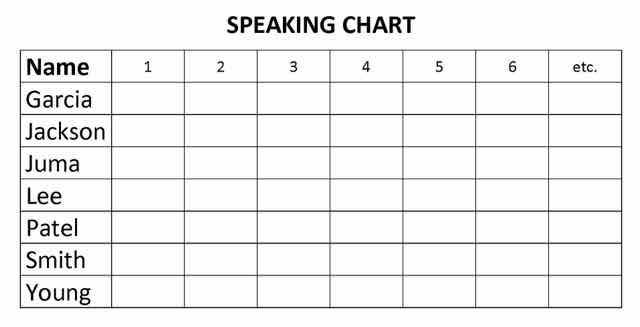
Tips for government bodies meeting remotely
Ann Macfarlane, Professional Parliamentarian

The big moment is here. You’ve done your due diligence by:
- reviewing
State of Alaska DHSS Coronavirus materials,
- planning with your staff,
- consulting your attorney, and
- choosing an online platform.
You’re all set to launch your first totally remote meeting. How are you going to make it a win? This article offers guidelines, tools and tips to conduct a remote school board meeting with success.
- Check your system to make sure that everyone can hear, and be heard, throughout the meeting. This is the most fundamental principle of remote meetings. It is essential. You’ll be glad you scheduled a test run when you see how many things can go awry.
- Comply with notice requirements. It should go without saying, but even in an emergency situation, local school boards must comply with Alaska’s Open Meeting Act (AS 44.62.310-312). Board By-Law 99320 outlines this for school boards.
- Decide how the public will attend or observe your meeting. This has to be part of your planning. What is most important is that boards allow for public comment, whether it be via phone or internet, they must allow the public their voice. Boards might want to investigate streaming their meetings on YouTube.
- Decide how you’re going to handle public comment. The OMA requires public comment, for our school boards during regular meetings. This is an established and essential feature of public meetings. There’s a lot of creativity going on! Some boards are urging the public to send comment in writing, others are allowing people to sign up ahead of time to dial in and speak, and some are even accepting voicemails.
- Prepare a lean and compliant agenda. School boards should prepare their budget with the areas of board oversight taking most of the time. Whenever you’re meeting remotely, you want to be thoughtful in choosing what topics you will cover.
- Add times to your agenda. Listing the anticipated start and end times for each item will help keep everyone on track. Jurassic Parliament recommends adding “all times approximate” so you have flexibility if discussion runs over—as of course it will!
- Prepare your room for the meeting. Everyone needs to put some thought into where they will be during the meeting. Choose as professional-looking a room as you can arrange. Dress appropriately and comfortably. Check that you have adequate lighting. Test out your microphone and camera. Minimize background noise. You don’t want to have a barking dog, the front doorbell, or your cell phone intrude into the meeting. Don’t chew gum on camera!
- Prepare yourself for the meeting. It’s essential to invest in the meeting ahead of time. Review the materials, study the agenda, marshal your thoughts in advance. Dress comfortably and appropriately. Plan to concentrate on the meeting and refrain from checking your email, no matter how tedious it may feel. As William Vanderbloemen says, “Virtual meetings require vigilant and singular attention—almost more focus than if you were in person.”
- The chair must control the meeting. As explained throughout Jurassic Parliament’s materials, the chair (board president) runs the meeting as the servant of the group, and the facilitator. Once the group has adopted rules and the agenda, the chair has the responsibility of making sure that the meeting runs accordingly. This means that the chair has to be a “benevolent dictator.” It isn’t easy to do this! However, you will serve your organization well when you do.
- No one may speak a second time until everyone who wishes to do so has spoken once. This is a fundamental guideline that ensures fairness in discussion. It’s so different from our ordinary, conversational style of discussion! Yet it is critical. In order to ensure this, members must “seek recognition” before speaking. In a video meeting, you can use the “raise hand” feature.
- Use the round robin. To use this method, the chair prepares a “speaking chart” listing everyone’s name, and then calls on everyone in turn. People may pass, and speak at the end of the round. Jurassic Parliament recommends that the chair speak last (this is our suggestion and does not come from Robert’s Rules of Order). If a second round is necessary, that’s fine. You can learn more about the round robin in this article. Here’s a sample of a speaking chart:

- No one can dominate the discussion. If your members decline to use the Round Robin, it’s still essential to prevent anyone trampling on the rights of others. The chair must be strict in recognizing people. Everyone must state their name before speaking. Again, no one may speak a second time until everyone who wishes to do so has spoken once.
- Don’t allow interruptions. In everyday life we interrupt each other all the time, but it’s forbidden in Robert’s Rules. Robert even says that the chair may not interrupt a member just because the chair knows more about a topic than the member! The exception is when an important rule is being broken, so the chair intervenes, or a member makes a Point of Order.
- Don’t allow inappropriate remarks. Certain kinds of remarks are inappropriate in your meetings because they are not germane (relevant). Read Inappropriate remarks on local government councils. The chair must stop them when they occur, or a member may raise a Point of Order. Note that these requirements for good decorum apply to the members of the body when they are in a meeting, but do not apply to the public giving public comment.
- Members may use Point of Order and Appeal if they disagree with the chair’s decision. When the chair makes a ruling or a decision that seems wrong to a member, they can raise a Point of Order, which can be Appealed. In Jurassic Parliament’s view, these two motions are critical to the democratic process, as explained in Point of Order and Appeal are the heart of democracy.
- Use a voting chart. Likely your clerk already has this chart in the tool kit, but just in case here is a sample.

Well, it’s quite a list, but with energy, attention, and good will, you can run effective remote meetings that will continue your vital service to our communities. Let me know how these ideas work for you!
# # #
